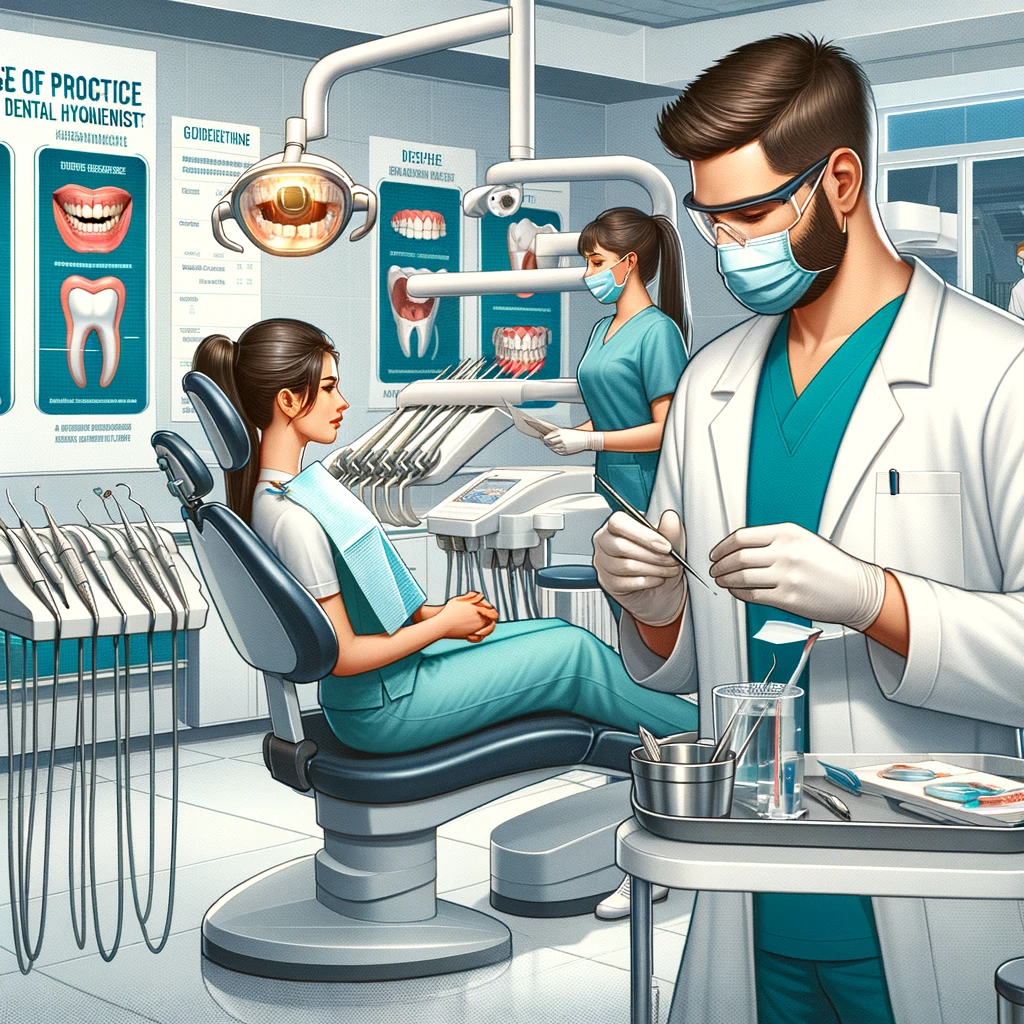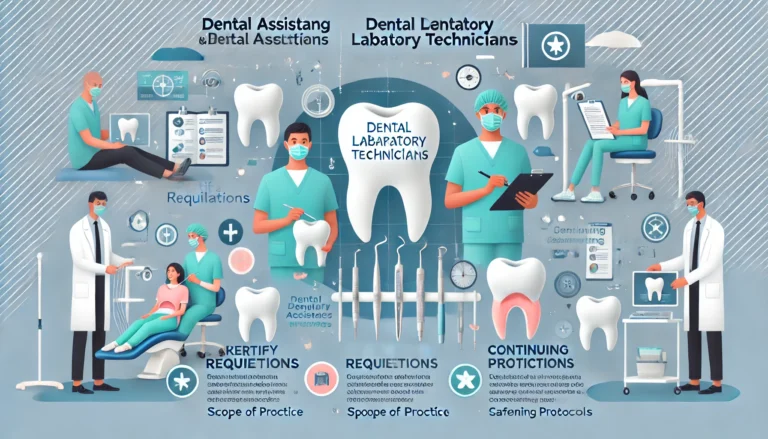Unlocking the Full Potential: Scope of Practice Guidelines for Dentists and Dental Hygienists
When you walk into a dental clinic for your regular check-up or a dental procedure, you may not realize that every aspect of your care is governed by specific guidelines. These guidelines, known as Scope of Practice Guidelines, play a pivotal role in determining what dentists and dental hygienists can do. In this article, we’ll delve into the world of dental practice and explore the scope of practice guidelines that shape the dental care you receive.

Understanding Scope of Practice
Scope of Practice refers to the range of duties, responsibilities, and procedures that a healthcare professional, in this case, dentists and dental hygienists, are permitted to perform. These guidelines are established to ensure patient safety, maintain quality care, and define the boundaries of each profession.
Dentists: Masters of Oral Health
Routine Dental Care
Dentists are at the forefront of oral health care. Their scope of practice typically includes:
- Oral Examinations: Dentists are responsible for conducting routine oral examinations to assess your oral health, detect issues, and provide treatment recommendations.
- Dental Cleanings: They perform dental cleanings and scaling to remove plaque and tartar, which helps prevent tooth decay and gum disease.
- Dental X-rays: Dentists may take X-rays to diagnose hidden dental problems such as cavities, impacted teeth, or jawbone issues.
- Fillings and Restorations: Dentists are skilled in filling cavities, placing dental crowns, and performing various restorative procedures to repair damaged teeth.
- Tooth Extractions: When necessary, they can extract teeth, including wisdom teeth.
- Orthodontic Evaluations: Dentists evaluate orthodontic issues and may refer patients to orthodontists for braces or other treatments.
- Oral Surgery: They can perform minor oral surgical procedures, such as removing impacted wisdom teeth.
Advanced Dental Procedures
Dentists with specialized training may perform advanced procedures, such as:
- Root Canal Therapy: Dentists can save and restore teeth with infected or damaged pulp through root canal therapy.
- Dental Implants: They can place dental implants to replace missing teeth.
- Cosmetic Dentistry: Some dentists offer cosmetic services like teeth whitening, veneers, and smile makeovers.
- Oral and Maxillofacial Surgery: Oral surgeons, who are dentists with additional training, can perform complex surgical procedures involving the mouth and jaw.
Dental Hygienists: Guardians of Oral Hygiene
Dental hygienists are integral to maintaining oral health and work closely with dentists. Their scope of practice typically includes:
- Dental Cleanings: Dental hygienists clean teeth, remove plaque and tartar, and polish teeth to a high shine.
- Patient Education: They educate patients about proper oral hygiene practices, including brushing, flossing, and diet.
- Dental X-rays: In some states, dental hygienists are trained to take X-rays to aid in diagnosis.
- Oral Health Assessments: They assess the overall oral health of patients, noting any abnormalities or issues for the dentist to review.
- Topical Fluoride Application: Dental hygienists may apply fluoride treatments to strengthen teeth and prevent decay.
- Sealant Application: They can apply dental sealants to prevent cavities, especially in children.
- Oral Health Screenings: Hygienists may perform screenings for oral cancer and other oral diseases.
Collaboration for Comprehensive Care
Dentists and dental hygienists often work together to provide comprehensive oral health care. While dental hygienists focus on preventative and routine care, dentists handle diagnosis and treatment, including more complex procedures.
The Importance of Scope of Practice
Understanding the scope of practice guidelines is crucial for both dental professionals and patients. For dental professionals, it ensures they stay within legal and ethical boundaries, providing safe and quality care. Patients benefit by receiving care from qualified professionals who are experts in their respective roles.
Before any dental procedure, it’s essential to have a conversation with your dentist or dental hygienist to understand what to expect and ask any questions you may have. This open communication helps ensure that your oral health care aligns with the scope of practice guidelines and meets your specific needs.
In conclusion, scope of practice guidelines for dentists and dental hygienists are the framework that defines the extent of their roles in oral health care. These guidelines ensure that you receive the right care from the right professional at the right time, ultimately contributing to your overall oral health and well-being.



